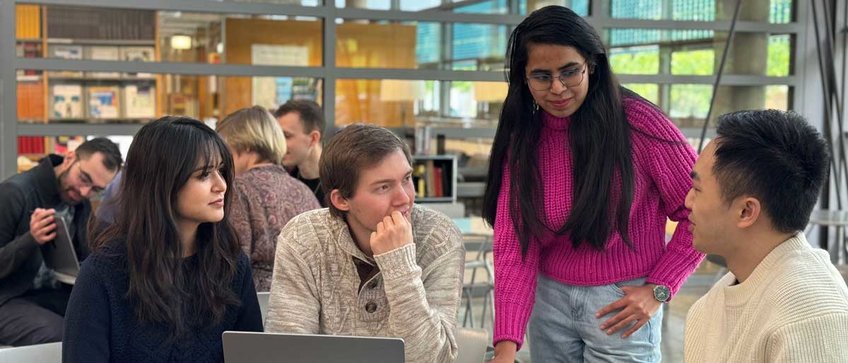
In a Nutshell
The IMPRS-CellDevoSys is more than a structured PhD program: It's a launchpad for the next generation of interdisciplinary researchers. 🚀
This is where deep science meets a deeply connected community. From day one to defense, you’re part of a supportive, collaborative, intellectually rich, and fundamentally-interdisciplinary environment — right in the heart of Dresden’s vibrant research campus.
Who We Are
The International Max Planck Research School for Cell, Developmental and Systems Biology (IMPRS-CellDevoSys) is the doctoral research school of the Max Planck Institute of Molecular Cell Biology and Genetics (MPI-CBG), the Center for Systems Biology Dresden (CSBD) and the department of Biological Physics at the Max Planck Institute for the Physics of Complex Systems (MPI-PKS).
The IMPRS-CellDevoSys is tightly integrated with the Technische Universität Dresden (TU Dresden) and our University partner PhD program, the Dresden International Graduate School for Interdisciplinary Life Sciences (DIGS-ILS). Together, we form the two pillars of the Dresden International PhD Program (DIPP).
Where We Work
Our research faculty and PhD students are located at various locations throughout Biopolis Dresden, based primarily at the MPI-CBG, the CSBD, and the MPI-PKS. Dresden is renowned for its dynamic cross-pollination of scientific disciplines in the Dresden Concept, along with its pretty baroque architecture and thriving cultural scene.
What We Seek
Our program trains the future leaders of science. We are looking for innovative and independent minds who genuinely love the scientific process. With pioneering scientific research, an interdisciplinary, research-focused curriculum, our PhD program is tailored for those who are willing to master uncertainty in the persuit of scientific progress.
What We Offer
Our program offers several unique benefits including:
- outstanding, uniquely-interdisciplinary research in a highly cooperative environment
- dedicated mentoring and early independence
- open doors and interdisciplinary cooperations
- integration in a supportive and approachable international research community
- cutting edge technologies in core facilities
- financial security for the duration of thesis
How It All Began
One of the first International Max Planck Research Schools, the IMPRS-CellDevoSys program was founded by the Max Planck Society in Dresden in 2001. In 2006, the family grew larger when the TU-Dresden was recognized in the Excellence Initiative, marking the start of the Dresden International Graduate School for Interdisciplinary Life Sciences (DIGS-ILS). Today, the IMPRS-CellDevoSys and DIGS-ILS form the two pilllars of the Dresden International PhD Program (DIPP).
Over the past 23 years the research program and scientific orientation of the IMPRS has been associated to the history of its constituents and their corresponding scientific visions. The IMPRS Institutes have experienced the arrival of several new Institute Directors and Max Planck Research Group Leaders, all of whom are integrated into the program. This has resulted in the direct and smooth evolution from the early foundations of the IMPRS as a Molecular Cell Biology program to one of the most interdisciplinary PhD programs in Germany, Europe and world-wide, integrating disciplines ranging from Biology, Biochemistry, Biophysics, Computer Science and now, Mathematics.
The IMPRS-CellDevoSys PhD program shines as an exemplary interdisciplinary research school where biological problems are studied through a combination of experiments, computation and theory. Publications co-authored by IMPRS students since 2016 reached over 37,000 citations with Nature, Cell and Developmental Cell amongst the top 5 journals in which our PhD students most frequently publish. Interdisciplinarity has become the norm, with nearly all students in the program working on projects that combine at least two of the following fields of scientific inquiry: biology, biochemistry, biophysics, mathematics and computer science. Current projects with titles such as Prediction and Control of Development in a Dish and Machine Learning for Spaital Understanding of Mesoscale Cell Organisation are clear examples of this interdisciplinarity. They reflect the future research planned at MPI-CBG, CSBD and MPI-PKS with the incorporation of a new area of inquiry: Mathematics Applied to Biology.